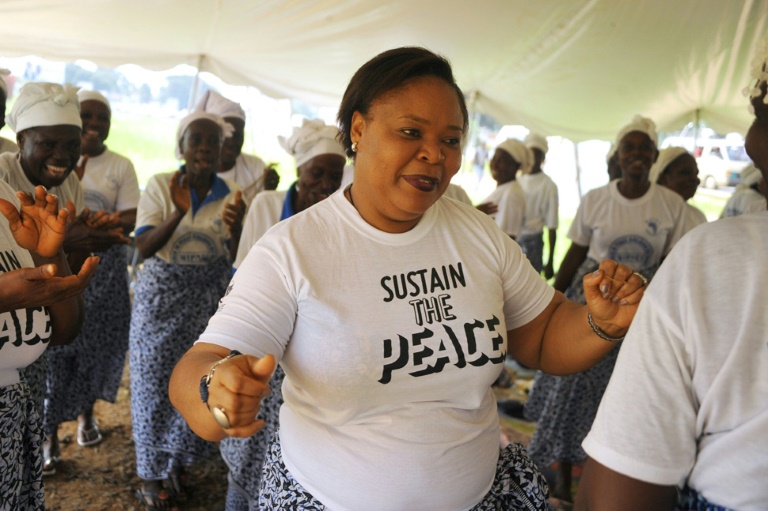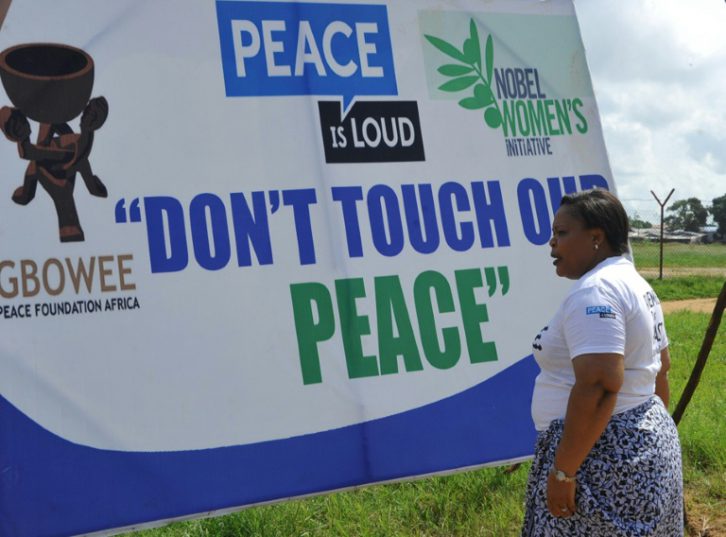Driver crashes into six trucks and five other vehicles on N3 in Durban
Ahead of elections next Tuesday, women of all ages are gathering from dawn to sunset on a roadside close to the party headquarters of several presidential candidates.
Their daily injunction for peace echoes the female activism that helped end Liberia’s civil wars, which ran back-to-back from 1989 to 2003.
The success of their non-violent protests propelled the bloodied West African state into the world headlines and earned a Nobel Peace Prize for one of its leaders.
“We led the process in 2002 and 2003 for the Liberian women’s mass action for peace. We are still assisting in maintaining this peace that we have,” Delphine Morris, national coordinator for the Women in Peacebuilding Network (WIPNET), said on Wednesday.
“For this electoral period, they thought it wise to come together again, to join their faiths and ensure that there be free and transparent elections,” she added.
At their small encampment, the WIPNET women regularly break out into song, and on Wednesday were shooting a music video to raise awareness of their work, to the delight and bemusement of passing traffic.
Twirling and sashaying, members sported T-shirts reading “Remember our past” and “Rape is a crime” as convoys promoting the main candidates passed by, beeping their horns at full volume.
– ‘We foresee violence’ –

Nobel peace laureate Leymah Gbowee, head of the Women in Peacebuilding Network (WIPNET), greets members in Monrovia
The women’s peace movement led sit-ins and pray-ins demanding peace talks and reconciliation during the civil war, and its founder Leymah Gbowee went on to jointly win the 2011 Nobel Prize for her work.
“During the war we were praying and fasting and the war ended,” recalls Jassah Ganyan, an elderly lady resting under the tarpaulin roof. “We don’t want more war.”
But many here believe the spectre of conflict still looms as President Ellen Johnson Sirleaf, also a co-winner of the 2011 Nobel, steps down after 12 years in power.
“We foresee electoral violence,” said Morris, eyeing an armoured police vehicle passing by.
“It’s not strange to Liberia. In the 2011 election when the result was announced, we had violence break out a little, and one or two people died. We don’t want it again.”

Nobel laureate Leymah Gbowee stands in front of WIPNET’s sign — many activists fear that after years of peace, violence could return to Liberia
In 2011 the losing candidate in a runoff with Sirleaf, Winston Tubman, had called on his supporters to boycott the second round of voting. Two people were shot dead outside his headquarters the day before the vote.
Morris worries that presidential candidates are stoking possible disputes by prematurely claiming victory in what is widely acknowledged as an open field this year.
“All the parties you talk to, they all say they must win and they feel they have already won,” Morris said, describing a memorandum against violence they have asked all of Liberia’s political parties to sign.
“If you don’t win maybe this is not your time, maybe you have to do better work,” she said.
Download our app and read this and other great stories on the move. Available for Android and iOS.